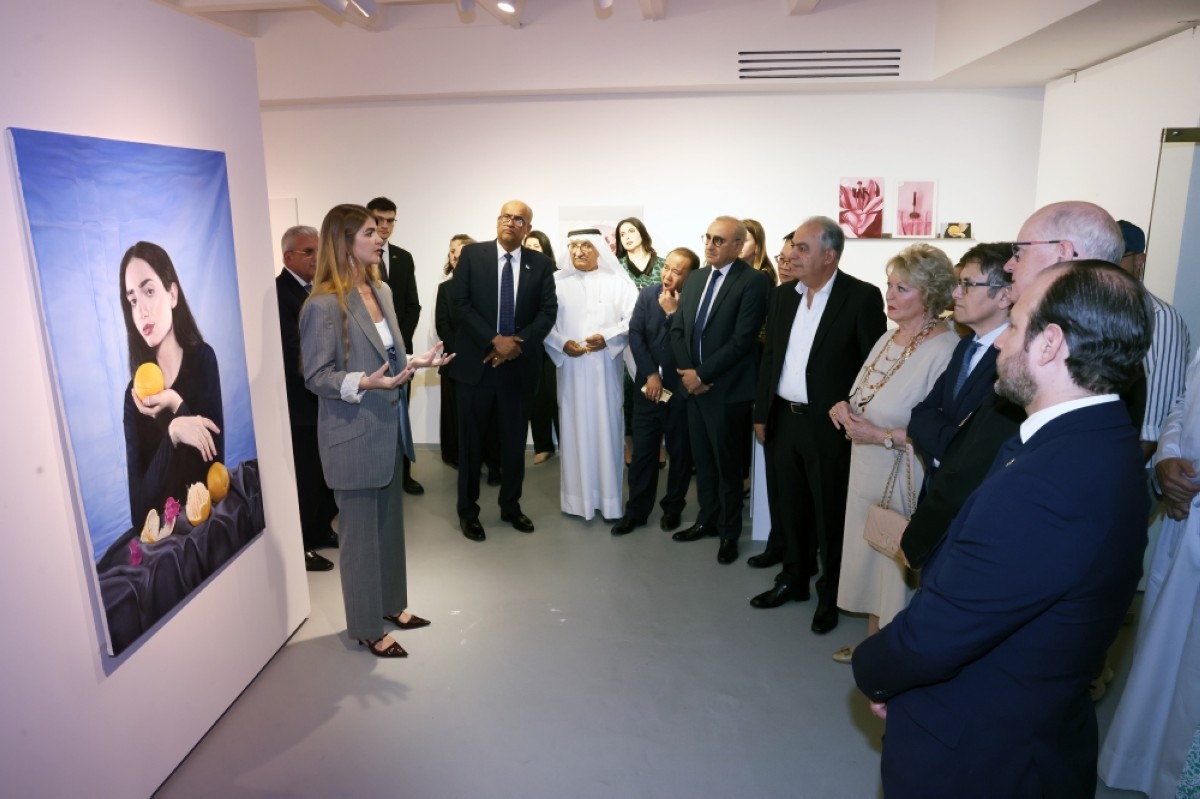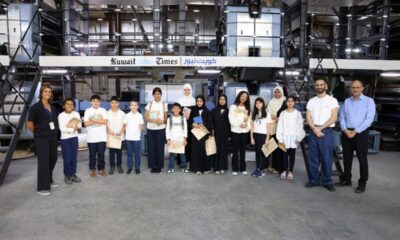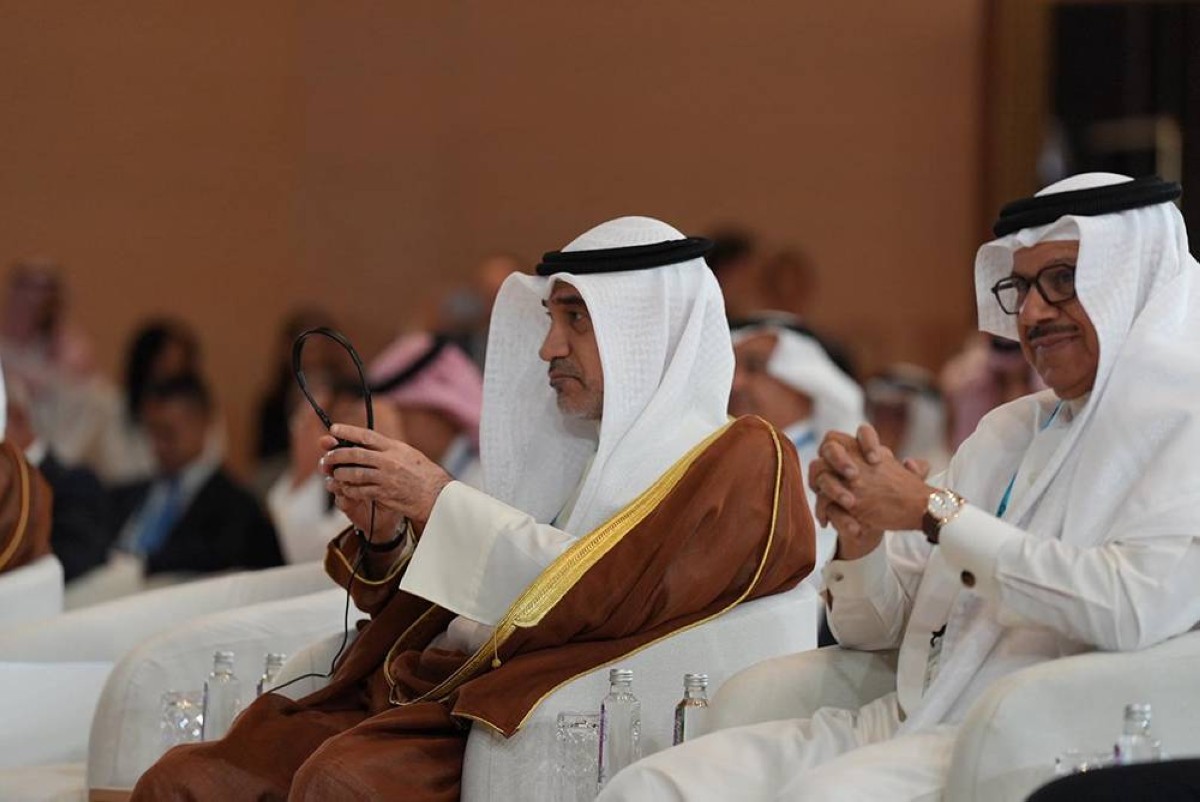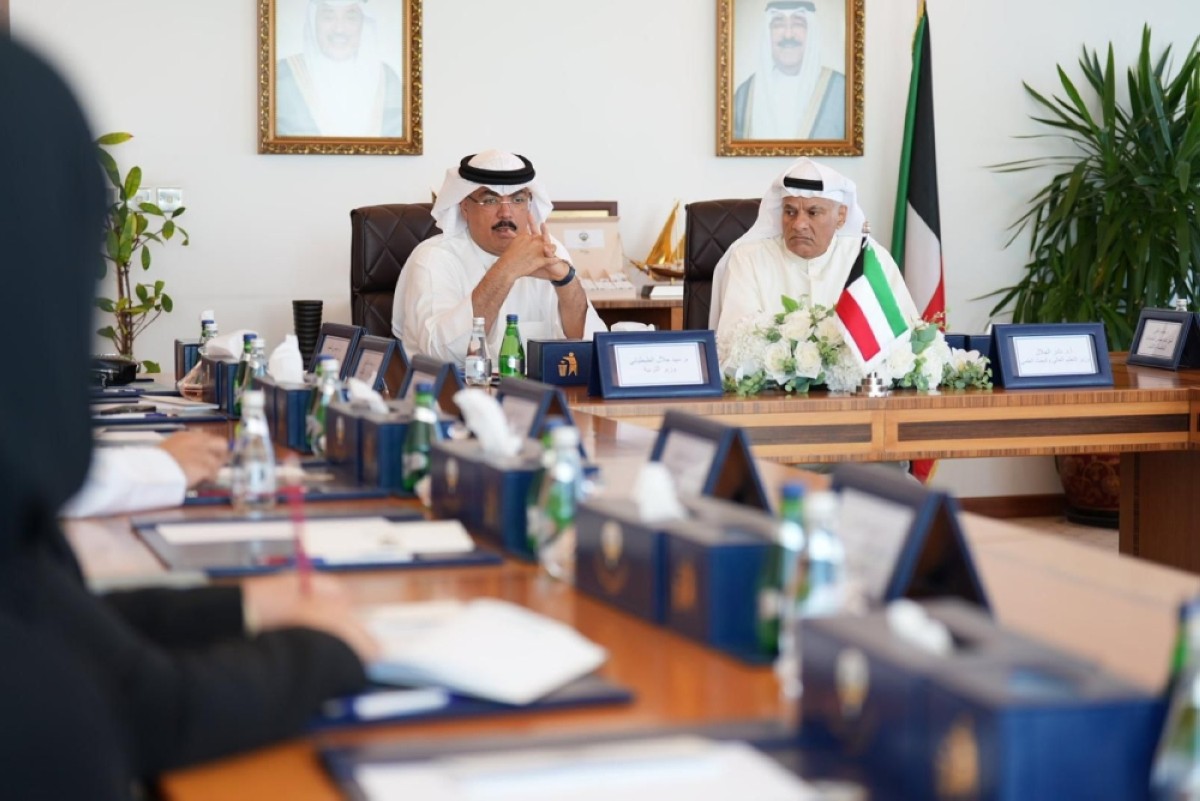By Passant Hisham and Christine Susan Shine
KUWAIT: In her deeply personal exhibition “Feels Like Yesterday,” Palestinian artist Reem Zaghmout invites viewers into an emotional journey shaped by longing for a homeland she has never truly known.
“Culture and creative expression allow us to share our story with the world,” said Palestinian Ambassador to Kuwait Rami Tahboub, during a visit to the exhibition. “Through art, the world can understand the Palestinian struggle, witness the reality of our people, and stand in solidarity with our cause.”
Represented by Hunna Art Gallery, which currently showcases 18 women artists with connections to the Arab Peninsula, Zaghmout as a vital voice in contemporary Middle Eastern art, cementing her role as a visual storyteller of the Palestinian experience. Her art is being showcased in Kuwait at an exhibition held in collaboration with the Palestinian Embassy and Hunna Art Gallery at Design District in Shuwaikh Industrial until May 22.
Ambassador Tahboub highlighted the role of art as “one of the most powerful tools of resistance.” He noted that Zaghmout’s work is deeply rooted in lived experience, not merely imagination. “Her paintings are emotional reflections of her daily feelings to Palestine,” he said. “They portray the ongoing suffering of Palestinians, especially in light of the current tragedy in Gaza.”
An art piece by Palestinian artist Reem Zaghmout depicting a white lily.
An art pieces showing crumpled paper, a common theme in Zaghmout’s work.
Curator Oceane Sailly (right) and Palestinian Ambassador Rami Tahboub observe Reem Zaghmout’s work displayed at Hunna Art Gallery.
An art piece showing oranges, one of several fruits tied to the Palestinian landscape featured in Zaghmout’s work.
Curator Oceane Sailly, director of Hunna Art Gallery, echoed this, noting that Zaghmout’s art resonates with the shared pain of displacement that many Palestinians feel. “There’s a constant longing for a homeland she never truly knew,” Sailly said. “She’s always exploring the locus of memory.”
Though Zaghmout resides outside of Palestine, her artwork conveys a profound sense of connection and longing, a theme Sailly described as central to the exhibition’s first series. These works focus on symbolic fruits, watermelons, pomegranates, and Jaffa oranges, each tied to the Palestinian landscape and cultural memory. Zaghmout reimagines these fruits not only as links to heritage but as objects of domestic intimacy.
Her recurring use of peeled oranges and scattered leaves draws from her childhood memories of her mother, turning everyday moments into symbols of both personal and political reflection. The ambassador noted the significance of these agricultural symbols, famously grown in Jaffa, Gaza, Jericho, Qalqilya, and Tulkarem, as tributes to Palestinian identity, heritage and resilience.
The second series, Sailly explained, presents paintings that resemble crumpled paper, an illusion that invites viewers to examine what lies beneath the surface. “The fragmented nature of these artworks speaks to the incomplete and often painful process of remembering,” she said.
A standout element in the exhibition is Zaghmout’s final series, inspired by drawings made by Palestinian children. Works like “A Little Girl (Dima),” “Open, O Flower, “and “As the Tree,” carry childlike innocence while serving as expressions of loss, endurance and hope. These pieces, while playful in style, reflect the emotional testimonies of survival, underscoring what Ambassador Tahboub described as “the ongoing suffering” but also the enduring strength of the Palestinian spirit.




































